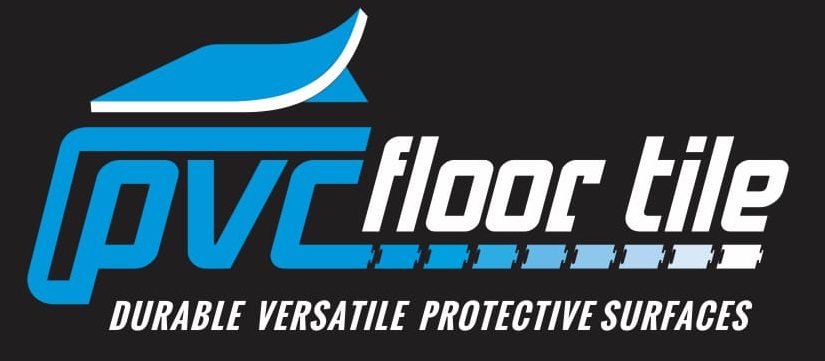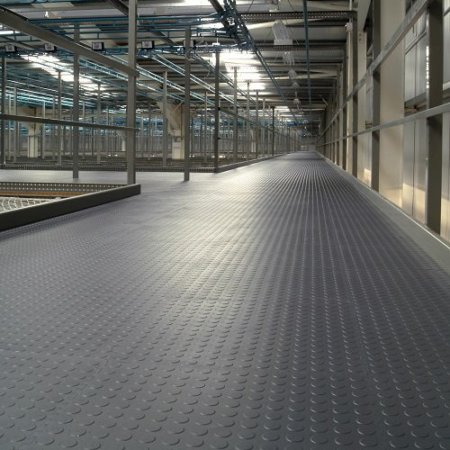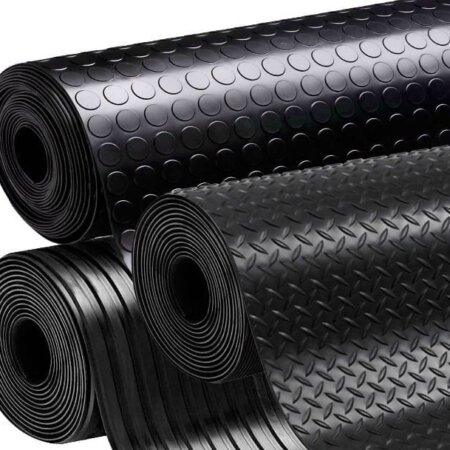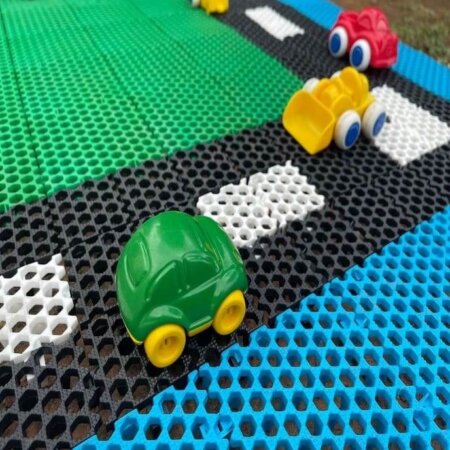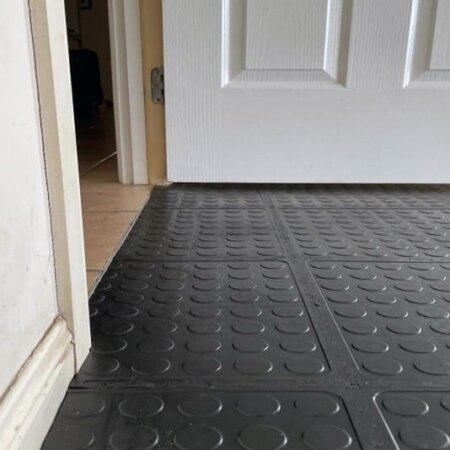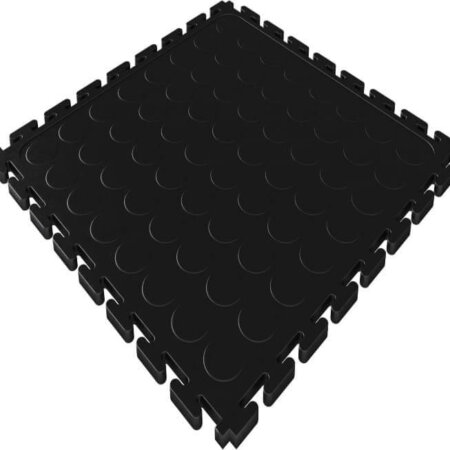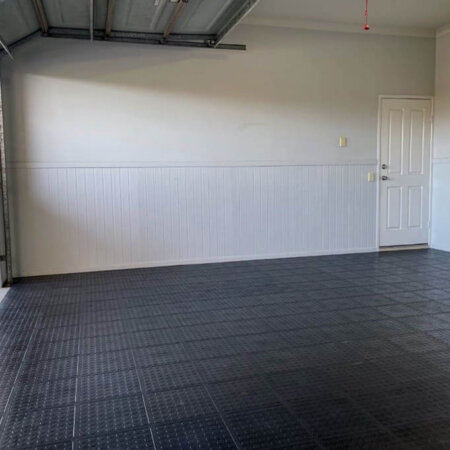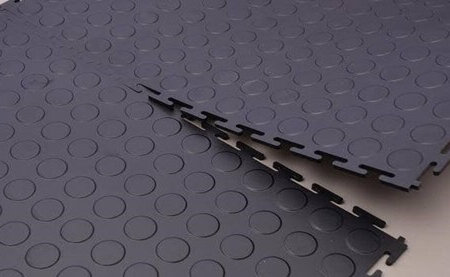PURCHASE OUR PVC MATS @ R130.30
Rubber Interlocking Mats
Interlocking rubber tiles are the most durable industrial type of flooring one can get. It’s cost-effective.
Find a great deal on a variety of our rubber mats which are of high quality and highly resilient matting at affordable prices. As a manufacturer of rubber matting, our product is one of the solutions that give the best protection against high-volume traffic.
The rubber interlock edge ensures the fastening of tiles securely on the floor. Interlocking rubber mats can only be laid on a flat surface, the surface doesn’t need to be prepared to aesthetic levels.
Rubber interlocking mats can be installed without adhesive in areas where there is low traffic, and it is one of the flooring solutions that has a sound reduction capability and offers ergonomic advantages to users.
Pvc Rubber Interlocking Mats
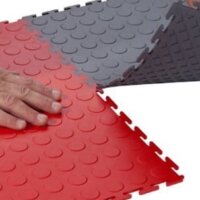
Pvc Rubber Duckboard Lock Floors

Rubber Gym Interlocking Mats
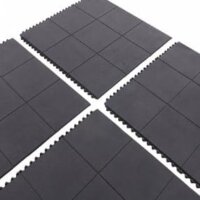
Eva Foam Rubber Interlocking Mats
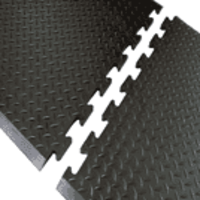
Why are our Pvc interlocking mats special?
Our special range of Interlocking Pvc Mats offers solutions for most industrial and commercial flooring applications including gyms, factories, warehouse flooring, garages, workshops, offices, kids’ play areas, and retail spaces.
We offer a wide selection of thicknesses, colors, and surface patterns including a full range of edging strips to complete the look of your installation.
PVC Interlocking Mats are a practical, durable, and cost-effective flooring solution that can be laid on top of practically any surface if the surface is hard and even.
In most cases, no adhesive is required, and no surface preparation is necessary, making the installation quick and easy the floor can be used instantly, and there is no waiting period or time to ensure its dries.
FAQs
- Cost of mats versus the cost of other flooring products
- Area size that needs to be installed
- Installation area preparation
- Volume of traffic to consider whether adhesive or no adhesive to use
- Consider colour marks on the room design
- Think about interlocking rubber mats to rubber rolls
- Installed, removed, and reinstalled anywhere without damage
- Resilient and extreme durability
- Affordable pricing
- Manufactured locally and is one of the products that doesn’t have import because of lower pricing models
- Sound reduction and thermal insulation properties
- A rubber mat is economical than sheeting
- An interlock edge simplifies installing
- It can create comfortable in walking
- Rubber mats economical option for home gyms.
- Fast installation with puzzle edging
- Smaller pieces are easier to handle
- Many thicknesses choices
- Pvc Floor tile does not have a minimum order for colors
- No lead time for black and a few non-standard colors
- Can set atop low pile carpet
- Non-slip flooring
- No adhesive is needed in low-volume areas
- Eco-friendly as black mats are made from recycled PVC stripping and out of warranty and Brocken rubber mats can also be recycled back to make new rubber mats
- Rubber mats have multi-purpose functions such as making gym mats, garage mats, warehouse mats and workshop mats.
- DIY products for the enthusiast
- Both of these can be installed in gyms and children’s indoor playgrounds, although rubber tiles are not suitable for garage floors.
- Interlocking rubber tiles are porous and absorb water, whereas PVC interlocking tiles do not have the same ability.
- The PVC interlocking tile is, aesthetically, more appealing than its rubber counterpart.
- The rubber tiles are actually much heavier than PVC tiles.
Properties |
Pvc Interlocking Tiles |
Interlocking Rubber Tiles |
| Flexibility | x | √ |
| Porousness | x | √ |
| Odor | x | √ |
| Multi-purpose Floor tiles | √ | x |
| Garage tiles | √ | x |
| Playground | √ | √ |
- Gym rubber mats
- Workshop rubber mats
- Warehouse rubber mats
- Garage rubber mats
- Multipurpose rubber mats
Installing the correct heavy-duty industrial flooring is most important within your workplace. There are many times of rubber flooring one may choose from.
Using the right rubber interlocking mats will ensure safety among workers and they will know that they can work and walk faster without fear of slipping.
The best and most efficient way of laying gym, garage, and workshop flooring is by laying industrial Rubber Interlocking Mats, it is one of the most cost-effective ways of rubber flooring in modern times
Installing interlocking rubber tiles is a relatively simple process that can typically be done by a homeowner with basic DIY skills. Here is a general overview of the steps involved:
Prepare the surface: The surface where the tiles will be installed should be clean, dry, and level. If necessary, use a self-leveling compound to level out any uneven areas.
- Start in one corner: Begin installing the tiles in one corner of the area to be covered. Make sure the tabs on one tile fit into the slots on the adjacent tile to create a tight and secure fit.
- Continue installing tiles: Continue installing tiles in a row, making sure that the tabs and slots of each tile are properly aligned.
- Trim tiles as necessary: Use a utility knife to trim any tiles that need to be cut to fit around the edges of the area.
- Finish and enjoy: Once all the tiles are installed, your new interlocking rubber tile flooring is ready to be used.
It’s important to make sure that you have enough tiles to cover the area, to avoid having to stop in the middle of the installation, and to check if the surface is properly cleaned, and free of any debris before starting the installation.
Rubber flooring can have several disadvantages, including:
- Cost: Rubber flooring can be more expensive than other types of flooring, such as vinyl or linoleum.
- Durability: While rubber flooring is known for its durability, it can be prone to tearing or punctures, especially if it is exposed to sharp objects or heavy machinery.
- Stains and discoloration: Rubber flooring can be susceptible to staining and discoloration over time, especially if it is exposed to oils, chemicals, or other harsh substances.
- Off-gassing: Rubber flooring can release volatile organic compounds (VOCs) when it is first installed, which can cause indoor air pollution.
- Slipperiness: Rubber flooring can be slippery, especially when it is wet, which can be a safety hazard in certain areas such as bathrooms, showers, and kitchens.
- Limited design options: Rubber flooring is typically available in a limited range of colors and patterns, which may not be suitable for all design styles.
It’s important to consider these disadvantages and weigh them against the advantages of rubber flooring, such as its durability, sound insulation, and slip-resistance, to decide if it is the right choice for your needs.
Interlocking tiles can be a good choice for certain applications, as they offer several benefits including:
- Easy installation: Interlocking tiles are designed to be easy to install, typically without the need for adhesive or special tools. This makes them a good option for DIY projects or for areas that need to be frequently reconfigured.
- Versatility: Interlocking tiles come in a wide variety of materials and designs, making them suitable for a range of applications, including home gym floors, garage floors, patios and decks, and even in commercial settings like trade show flooring and event flooring.
- Durability: Interlocking tiles are typically made of durable materials that can withstand heavy foot traffic and resist wear and tear.
- Easy maintenance: Interlocking tiles are easy to clean and maintain and can be replaced individually if they become damaged or stained.
- Customizable: Interlocking tiles can be used to create a variety of patterns, designs, and color combinations, making them a good option for those who want to customize their flooring.
However, there are also some disadvantages of interlocking tiles, such as cost, and the fact that they can shift over time if not properly installed, which can compromise their durability and aesthetic appeal.
It’s important to consider your needs and the specific characteristics of the space where the tiles will be installed before deciding.
Commercial flooring
- Commercial rubber tiles
- Playground kids playing areas
- Event/ tent flooring
- Temporary flooring
- Dance floors
- Hospital flooring
- Government building flooring
- School classroom flooring
Industrial flooring
- Workshop flooring
- Warehouse flooring
- Kitchen flooring
- Industrial anti-fatigue mats
- Rubber sound underlaying
Residential flooring
- Patio flooring
- Home garage flooring
- Basement flooring
- Home gym flooring
- Personal gym floor tiles
- Playmats
- Decking flooring
- Home playground flooring
- Basement flooring
Sports and athletic flooring
- Gym flooring
- Ballet flooring
- Gym mats
- Exercise matting
- Gymnasium flooring
- Athletic rubber flooring
